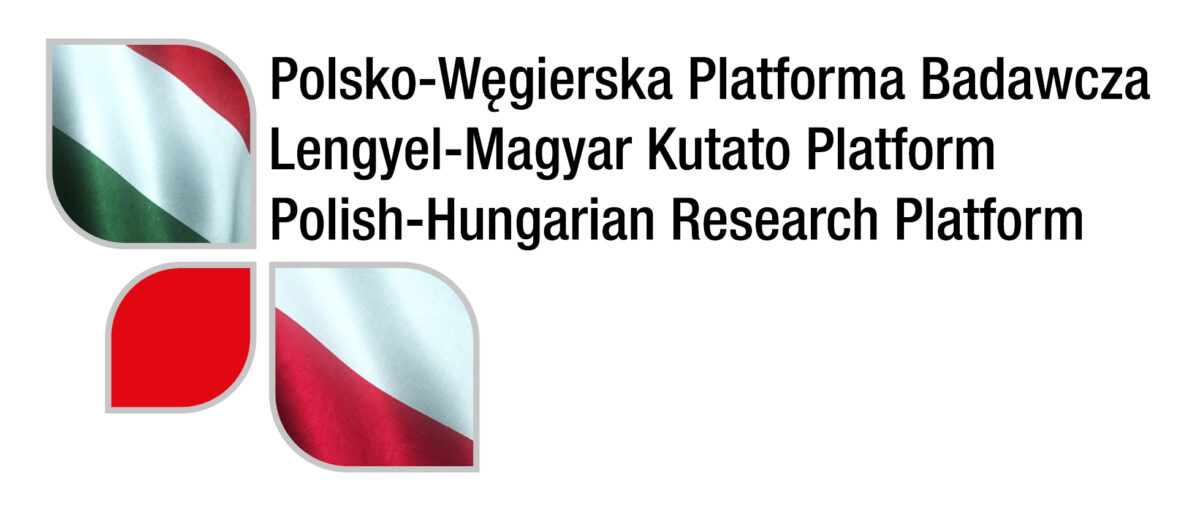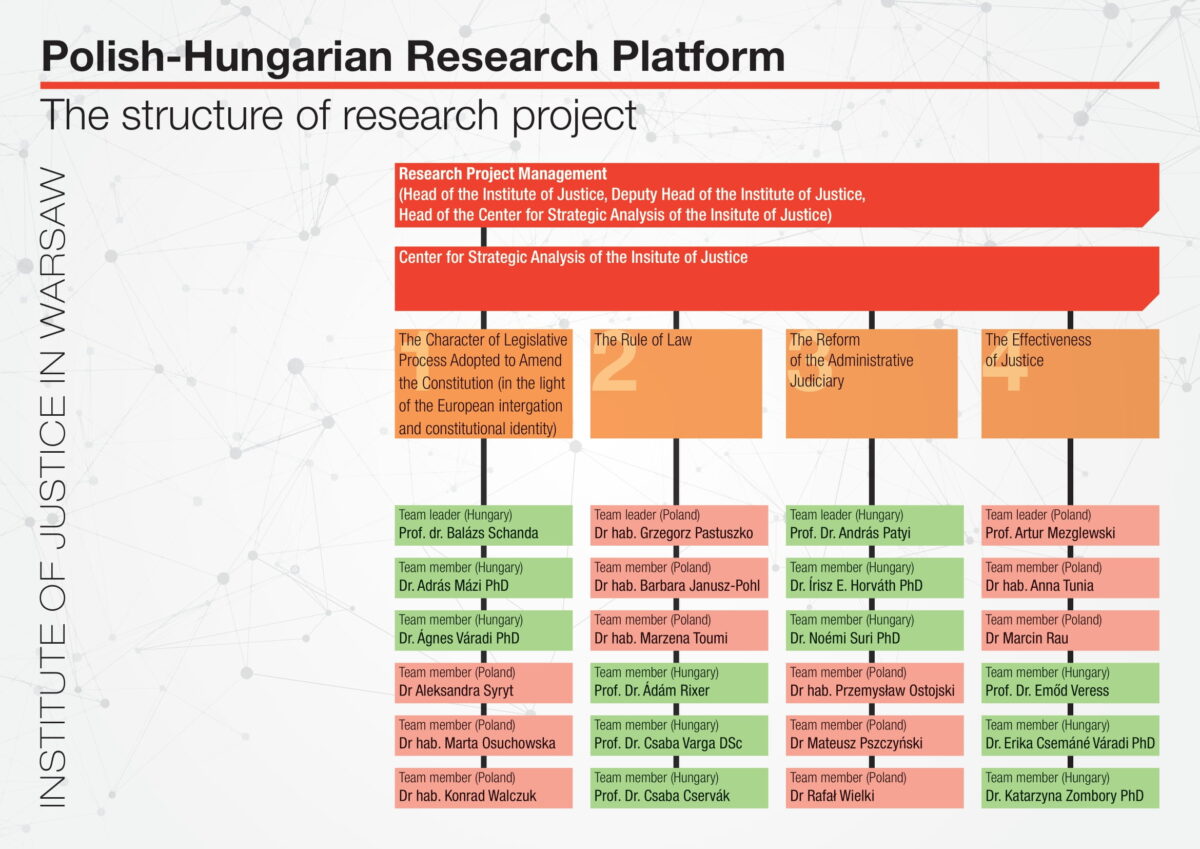
The international research project “Polish-Hungarian Research Platform” was set up to carry out in-depth analyses on the change of the constitution, the rule of law, reform of the administrative judiciary and the effectiveness of the judiciary. The project partner is the Ferenc Mádl Institute of Comparative Law.
The proposed project purpose is to carry out research and activities aimed at analyzing the nature of the legislative process regarding changes to the Constitution (in the light of European integration and constitutional identity); rule of law; reforms of the administrative judiciary; efficiency of the judiciary.
In addition, the research project involves the publication of at least 4 peer-reviewed scientific monographs; organizing at least 7 monthly international scientific conferences and an international scientific conference at the end of the project.
The research carried out under this project should lead to the stimulation of in-depth and at the same time broad discussion correlating with the subject matter of the title.
For this reason, it is important that the final products of the project are properly promoted. Additionally, the analysis of the above research should lead to the development of a number of de lege ferenda postulates for the Polish, Hungarian and European legislators. The obtained results should be applicable both in theory and practice.

Project goals:
- Nature of the legislative process adopted to amend the Constitution (in light of European integration and constitutional identity): The aim is to understand the mechanisms and factors influencing the process of constitutional amendment in a democratic state ruled by law;
- Rule of law principle: The aim is to define the correct understanding of the concept of the rule of law (rationale, evaluation, implementation, correlation of the rule of law with the EU legal state, etc;)
- Reform of administrative judiciary: The aim is to learn about new mechanisms, structure and organization, as well as the functioning of administrative judiciary in order to conduct administrative proceedings fairly;
- Effectiveness of the judiciary: The aim is to test the efficiency, i.e. the efficiency, duration and complexity of cases dealt with in courts.
The above goals are only inspiration, their specification depends on the Heads of Research Teams.

Structure of the Project


Project Calendar:
May 10, 2021 – Kick-off meeting (on-line)
May 16, 2021 – Heads of Research Teams – in cooperation with other members of the Research Teams – prepare descriptions of research concepts and goals.
May 17, 2021 – Research Team Leaders send descriptions of concepts and research goals to the Institute of Justice.
May 31, 2021 – the Heads of Research Teams – in cooperation with other members of the Research Teams and the Institute of Justice – organize an open scientific conference at which Research Teams present the current research results.
June 30, 2021 – the Heads of Research Teams – in cooperation with other members of the Research Teams and the Institute of Justice – organize an open scientific conference at which Research Teams present the current research results.
July 31, 2021 – the Heads of Research Teams – in cooperation with other members of the Research Teams and the Institute of Justice – organize an open scientific conference at which Research Teams present the current research results.
August 31, 2021 – the Heads of Research Teams – in cooperation with other members of the Research Teams and the Institute of Justice – organize an open scientific conference at which Research Teams present the current research results.
September 30, 2021 – the Heads of Research Teams – in cooperation with other members of the Research Teams and the Institute of Justice – organize an open scientific conference at which Research Teams present the current research results.
October 1, 2021 – All members of the Research Teams prepare their chapters of a scientific monograph in English (80,000 characters with spaces and footnotes, no final version). Each chapter should contain de lege ferenda postulates for the Polish, Hungarian and European legislators; application in theory and practice).
October 2, 2021 – members of Research Teams submit chapters of a scientific monograph for approval by the Heads of Research Teams.
October 15, 2021 – Heads of Research Teams send to the Institute of Justice all chapters of a scientific monograph for approval and in order to start the publishing process (after this date, the Institute of Justice contacts individual authors on individual dates in connection with the publishing process.
October 31, 2021 – the Heads of Research Teams – in cooperation with other members of the Research Teams and the Institute of Justice – organize an open scientific conference at which Research Teams present the current research results.
November 30, 2021 – Each member of the Research Teams, including Research Team Leaders, organizes – with the help of the Institute of Justice – one event promoting the Project (e.g. one event promoting the Project (e.g. an interview)
November 30, 2021 – Research Team Managers – in cooperation with other members of the Research Teams and the Institute of Justice – organize an open scientific conference at which Research Teams present research results.
December 31, 2021 – the Heads of Research Teams – in cooperation with other members of the Research Teams and with the help of the Institute of Justice – organize a scientific conference at which Research Teams present the current research results.
December 31, 2021 – The Institute of Justice issues four scientific monographs in English (each for each research team).
The scientific editors of individual monographs are Research Team Managers and Project Management.








